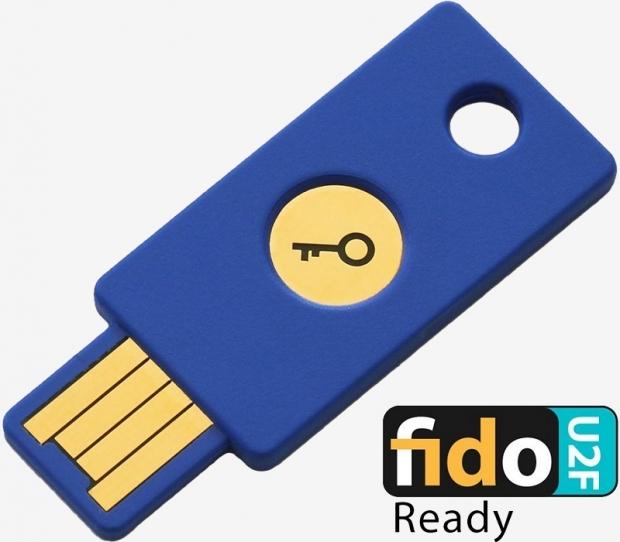Google is making its two-factor authentication even safer, with the announcement of support being added for Security Key. With this, Google allows its users to purchase a physical USB stick from a third-party company that can be used as your personal identification when logging into Gmail, Chrome, or any other Google account.
Once you've acquired your security key, you can plug it into your computer, press the built-in button on the dongle when asked, and voila - you're secure, and you now have a security key. This key only works after verifying the site you're logging in to, verifying that it is indeed a Google site and not some phishing attack. The device uses the FIDO Universal 2nd Factor (U2F) protocol, which means it can be used to log into other websites that support the U2F protocol, as long as you're within Chrome.
The service itself is free, but you'll need to secure yourself a not-so-free USB security key. Amazon currently sells FIDO U2F keys starting at around $5.99, all the way up to around $50.




